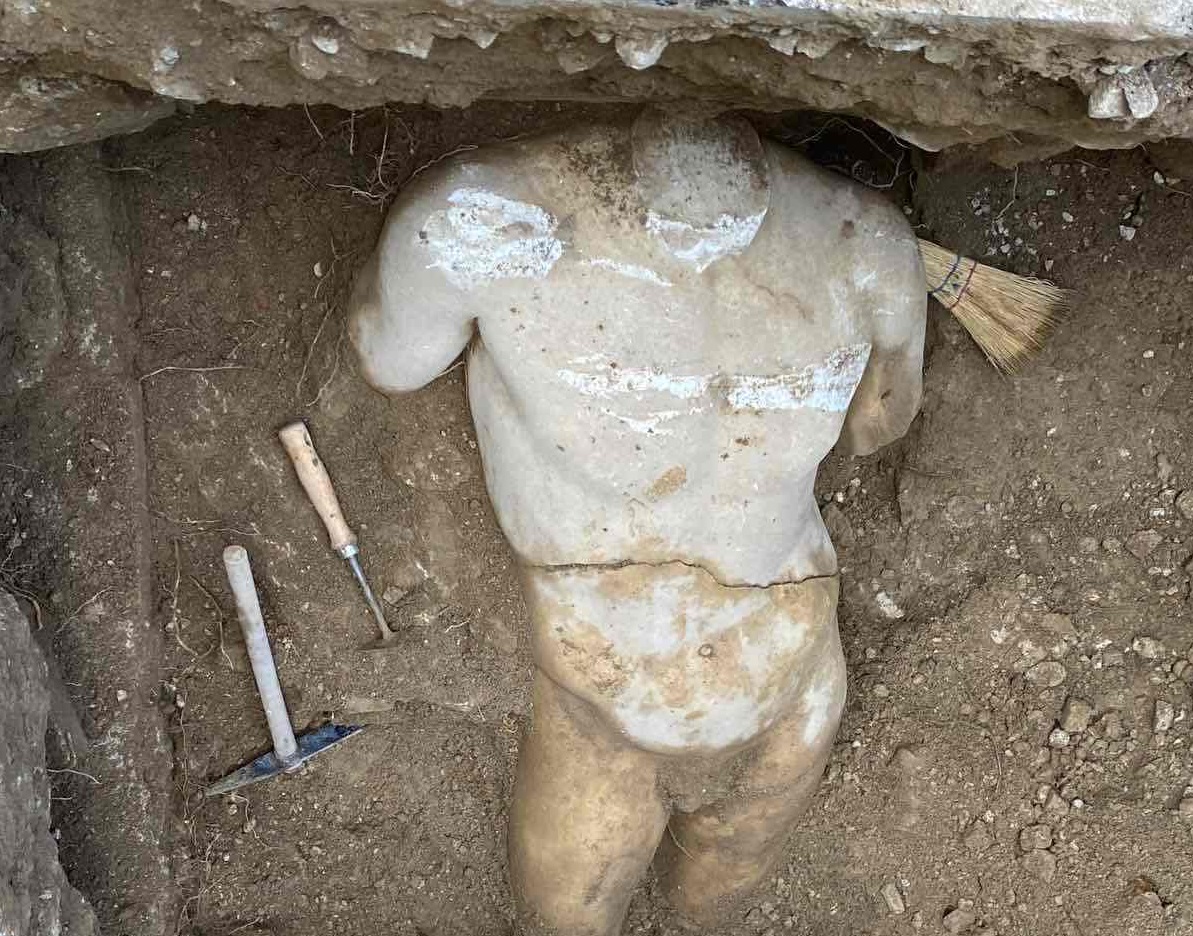Gas works near the Odeon of Herodes Atticus has led to the discovery of a statue crafted by the renowned Neo-Attic workshops.
The Odeon of Herodes Atticus is a Roman theatre located on the southwest slope of the Acropolis of Athens, Greece. It was constructed in AD 161 by Herodes Atticus in memory of his Roman wife, Aspasia Annia Regilla.
Recent gas works has led to the discovery of a statue depicting a naked male figure in the Ludovisi Hermes type, a sculpture form normally associated with the god Hermes as Hermes Psychopompus.
Hermes, an Olympian deity in ancient Greek religion and mythology, is regarded as the herald of the gods. He is also widely recognised as the guardian of human heralds, travellers, thieves, merchants, and orators.
Comparable examples to the Athens statue are the Hermes Ludovisi at the Palazzo Altemps and the Anzio Hermes in the Museo Nazionale Romano.
During the Roman imperial period (1st to 5th centuries AD), the area south of the Acropolis, where the statue was unearthed, was the site of several affluent Roman villas.
The villas were richly decorated with mosaic floors and sculptures crafted by the renowned Neo-Attic workshops who followed the style shown in reliefs and statues of the Classical (5th–4th centuries BC) and Archaic (6th century BC) periods.
The Greek Ministry of Culture said: “After documenting the statue, the staff of the Ephorate of Antiquities of the City of Athens will ensure its secure transport to the conservation laboratories, where it will undergo the required preservation and care.”
Header Image Credit : Greek Ministry of Culture
Sources : Greek Ministry of Culture





